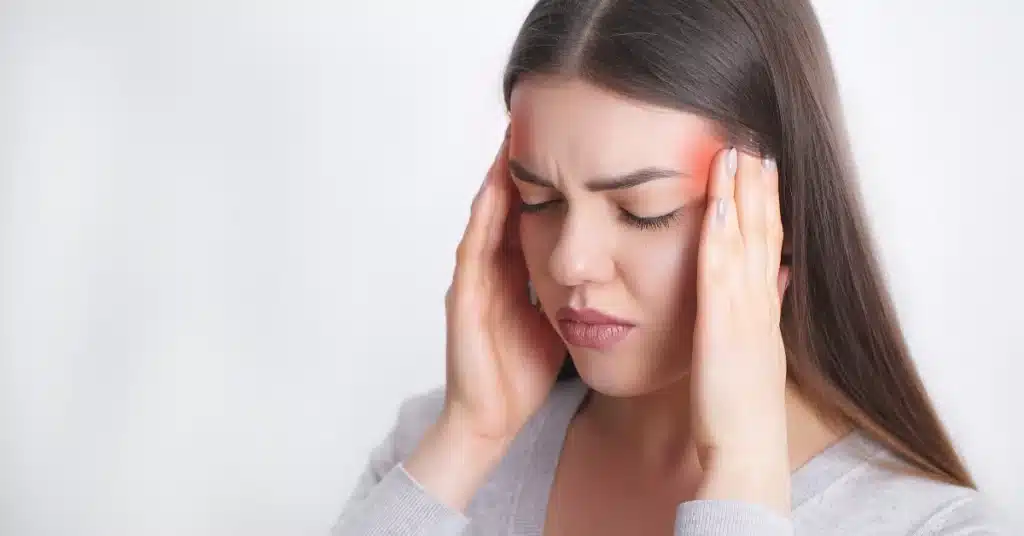Can Birth Control Make You Tired?: Unraveling the Connection
Hormonal and non-hormonal birth control methods are reliable methods for preventing pregnancy.
However, hormonal birth control can cause side effects in some people, such as mood swings, nausea, and sometimes fatigue.
But can birth control make you tired or more fatigued?
This comprehensive article will deeply elaborate on the connection between contraception and fatigue and will try to unfold every possibility that can cause tiredness.
Does birth control make you tired
The answer to this question is yes. Birth control can make you tired.
Here are some studies that support that birth control can make people tired:
Firstly, according to the NCBI 2021 report, users of combined hormonal pills can suffer from moderate to severe fatigue and other health-related problems.
Secondly, as per a 2023 study conducted on men and women working in rotating shifts, women on birth control were found to be more fatigued, tired, sleepy, and less alert than men.
On the other hand, women without birth control had no such dissimilarity in physical performance.
Thirdly, a 2022 study found that women on hormonal birth control have a 6% higher prevalence of sleep disturbances.
However, they also had a 17% less prevalence of not meeting the sleep duration recommendations when compared with those who take non-hormonal birth controls.
It means that people using hormonal birth control were more likely to get enough sleep than those who take non-hormonal birth control.
Lastly, according to a 2020 report, the sleep quality of hormonal contraceptives was similar to that of hormonal birth control users.
However, sleep efficacy was higher among people using non-hormonal contraceptives than hormonal contraceptive users.
How birth control makes you tired
There is no clarity on why birth control makes you feel tired. But we can help you understand how it makes you tired.
Here are some of the underlying reasons:
Rise in body temperature

Research shows that taking hormonal contraceptives is associated with a rise in body temperature, which can make it hard to fall asleep.
During the luteal phase of the cycle, when users of hormonal contraceptives compared with women without using it, the body temperature was similar.
However, during the follicular phase, the temperature was noted higher for contraceptive users than for women not taking hormonal contraceptives.
Menstruation: When you bleed
Follicular phase: Production of follicles on the surface of the ovary, which starts on the first day of the period and lasts for next 13 or 14 days
Ovulation: When a mature egg is released from the ovary
Luteal phase: After ovulation, cells of ovary release hormones that thicken uterine lining
Hormonal changes after taking birth control
Hormones in hormonal contraceptives contain Estrogen and Progestin that work similarly to the body’s natural hormones.
These hormones are recognized to have a hypnogenic effect (that induces or promotes sleep), affect the sleep cycle, and make you tired.
Further, women taking hormonal contraceptives reported the following symptoms:
- Frequent sleep complaints
- Excessive daytime sleepiness
- Insomnia-like symptoms
Women taking Progestin-only contraceptives reported lower total sleep duration when compared with hormonal contraceptive users.
Moreover, some researchers believe that if women take birth control in the morning rather than before bedtime, it can cause sleep impairment and affect the overall sleep cycle.
Also, Progestin in hormonal birth control can promote sleepiness, and taking them in the morning can eventually lead to daytime sleepiness and fatigue.
Nutritional deficiency
Birth control can also cause a deficiency of some minerals and vitamins responsible for energy production.
Hormonal birth control can interact with levels of certain minerals, such as folate, zinc, copper, selenium, Magnesium, and vitamins C, B1, B2, B3, B6, and B12.
Many of these nutrients are vital in energy production, and their low levels can cause fatigue or tiredness.
Overweight

Birth control may also cause weight gain.
Weight gain can also contribute to extreme tiredness, sleep disruptions, and fatigue.
Lower Testosterone levels
A 2013 research study showed that combined oral contraceptives decrease the circulating levels of free Testosterone.
Low Testosterone can lead to the following consequences that can lead to tiredness:
- Insomnia
- Loss of energy
- Sleep-disordered breathing
- Need to urinate a lot at night
- Mood changes
- Loss of sleep efficiency
However, more research is needed in this context to find the relation between sleep and Testosterone.
Mood disorders
Hormonal contraceptives can contribute to mood swings, anxiety, and Depression in women taking them. They can make them tired by disrupting the sleep cycle.
According to a 2016 study, the use of hormonal contraceptives is associated with the first diagnosis of Depression and subsequent use of antidepressants.
Further, another report found that hormonal birth control users have higher rates of the following problems when compared with women without using them:
- Depression
- Anxiety
- Fatigue
- Sexual disturbances
- Neurotic symptoms
- Compulsion
- Anger
- Negative menstrual effects
However, more research is needed to find more about the association between contraceptives and tiredness.
In contrast, a recent 2022 report found that women on birth control have lower Depression scores than women without taking them.
The research also concluded that hormonal contraceptives may reduce depressive symptoms.
Which birth control method makes you tired
When we talk about birth control that makes people tired, we are emphasizing hormonal birth control.
Hormonal birth control includes:
- Combination pills (contain Estrogen and Progestin)
- Progestin-only pills (mini-pills)
- Contraceptive patch
- Vaginal rings
- Birth control implants
- Birth control shots
- Hormonal Intrauterine Device (IUD)
- Morning after pill
Birth control with more hormones (combined pills and injections) can make people more tired than birth control with less hormone (Progestin-only pills).
Non-hormonal birth control does not contain hormones and is unlikely to cause such symptoms.
Some examples of non-hormonal birth control include:
- Condoms
- Diaphragm
- Spermicide
- Copper IUD
Effects of different contraceptives on insomnia
Though hormonal contraceptives are most likely to make people feel tired- that’s not always the case.
A 2023 report finds an association between the use of contraceptives and insomnia in women taking them.
As per the report, the users of a fixed combination of Drospirenone and Ethinylestradiol and Cyproterone and Ethinylestradiol had decreased odds of insomnia.
However, users of Levonorgesterel-releasing IUD and vaginal rings with Etonogesterel and Ethinylestradiol had increased odds of insomnia when compared with non-users.
Can birth control help you sleep better
Birth control can help some women with sleeping problems and make them fall asleep better.
Here are some ways in which it can help people:
- Improves night breathing: Birth control can lower the apnea-hypopnea index (a measure of how often breathing slows or stops during sleep)
- Help you get more sleep: A study found that different contraceptives can improve sleep in hormonal contraceptive users
- Induces sleep: Progesterone has a significant impact on sleep. It can act as a hypnogenic (exerts sleep induction) and respiratory stimulant
- Lessen period cramps: Hormonal contraceptives are often used by women to get shorter, lighter, and less painful periods, thus cannot keep you awake for longer
Can you feel tired after stopping birth control
Many women face side effects after starting a birth control method, including fatigue.
Fortunately, these symptoms may resolve after a few months once the body gets adapted to birth control methods.
However, if symptoms do not disappear, consult a healthcare practitioner and seek medical attention.
Although there is no evidence that stopping birth control can lead to tiredness, some women may experience these side effects until their body gets back to normal hormonal levels.
Other side effects of birth control

The following are some other side effects of birth control pills:
- Headache
- Nausea and vomiting
- Sore breasts
- Menstrual irregularities
- Spotting in between periods
On the other hand, contraceptive implants can lead to the following side effects:
- Low sex drive
- Menstrual irregularities
- Pain in the lower back or stomach area
- Mood swings and Depression
- Vaginal dryness
- Weight gain
- Headache and dizziness
How to combat fatigue from birth control

One possible way to combat fatigue from birth control is to take them before bed rather than taking them in the morning.
As it can lead to tiredness or fatigue, taking birth control before bed can reduce the chances of daytime fatigue or may also improve nighttime sleep.
It is necessary to consult a healthcare practitioner, as they may prescribe some alternative birth control to combat fatigue.
Further, some other effective ways to fight fatigue are as follows:
- Drink plenty of water
- Don’t skip meals, but never overeat
- Eat foods rich in Iron
- Eat healthy fruits, vegetables, and dairy products
- Get enough sleep
- Avoid sleeping pills
- Limit caffeinated beverages
- Increased physical activity
- Don’t smoke or consume alcohol
- Reduce stress
Further, consult a healthcare practitioner and seek medical treatment or guidance to combat fatigue and improve sleep with birth control.
Conclusion
Birth control can make people tired and feel fatigued. Many studies support that hormonal birth control can impact sleep and cause tiredness in women.
It can happen due to hormonal changes, nutritional deficiencies, weight gain, rise in body temperature, mood disorders, and low free Testosterone levels.
The hormonal birth control that makes you tired includes combined pills, mini pills, vaginal rings and patches, IUDs, birth control shots, implants, and morning-after pills.
However, there is certain evidence that birth control can help you sleep better by improving night breathing, inducing sleep, lessening period cramps, etc.
Further, people may face symptoms, such as fatigue or tiredness, after starting birth control. Some people may or may not get these symptoms after stopping them.
Moreover, birth control can also cause other side effects, such as headaches, menstrual irregularities, and spotting between periods.
Fortunately, it is possible to combat fatigue from birth control by drinking plenty of water, eating nutritional food, and reducing stress.
You should also consult a healthcare practitioner and seek medical guidance and treatment to treat the condition effectively.
Frequently Asked Questions
Why does birth control make me so tired?
Birth control can make you tired because it can negatively impact your sleep pattern and cause drowsiness throughout the day. Further, birth control can interact with certain minerals, such as zinc and selenium, and vitamins responsible for energy production. Thus, it can lead to fatigue as a side effect.
Why am I so tired all the time after taking birth control?
Hormonal birth control can make you tired by changing hormonal levels and causing a deficiency of minerals and vitamins essential for energy production. Further, birth control can raise body temperature, elevate mood disorders, and lower free Testosterone levels that contribute to sleep disturbances and tiredness.
Can birth control make you tired and lazy?
Yes, hormonal birth control can make you feel tired. Combination pills, mini pills, vaginal rings, implants, IUDs, and morning-after pills can make you tired. It happens due to hormonal changes, deficiency of minerals and vitamins, mood disorders, lower free Testosterone, and a rise in body temperature.
Can birth control make you tired?
Yes, combined birth control can make you tired. As per the 2021 report, users of combined birth control can suffer from moderate to severe fatigue and other health-related problems. Further, women on hormonal birth control have a 6% higher prevalence of sleep disturbances.






